Post-Taiwan Election: Where Are Cross-Strait Relations Heading?
(Baonghean) - The election of the head of government and Legislative Yuan in Taiwan (China) in recent days has attracted considerable public attention. To better understand the surrounding issues, Nghe An Newspaper interviewed Associate Professor, PhD, Major General Le Van Cuong, former Director of the Institute of Strategy and Science, Ministry of Public Security.
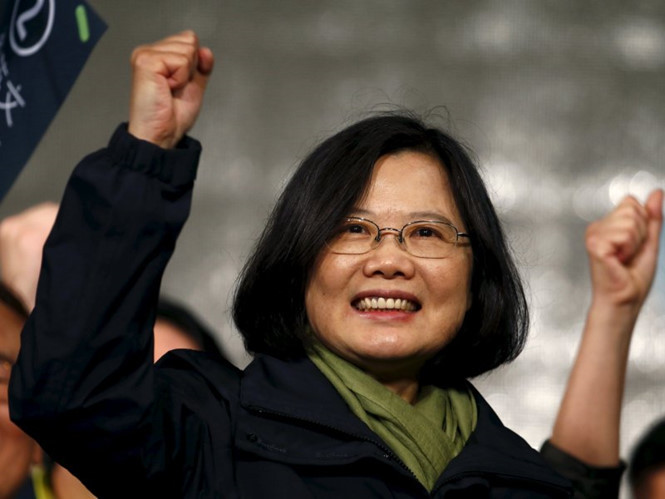 |
| Ms. Tsai Ing-wen - representative of the main opposition party DPP was elected head of the government of Taiwan (China) on January 16. Photo: Internet. |
PV:Dear Major General, can you provide readers with some information about the recent election in Taiwan, as well as the newly elected female leader, Ms. Tsai Ing-wen?
Major General Le Van Cuong:On January 16, Taiwan announced the results of the election for the head of government. Ms. Tsai Ing-wen - representative of the opposition Democratic Progressive Party (DPP) won overwhelmingly with 56% of the votes, while the candidate representing the Kuomintang (KMT) - Chu Lap-lun - only won 31% of the votes. Immediately after, Mr. Chu Lap-lun admitted defeat and declared that the KMT lost this election.
On the same day, Taiwan also held elections for the Legislative Yuan with 113 seats. The ruling party KMT only won 36 seats, while the DPP won 68 seats, marking a “double” defeat for the KMT.
This is the first time the DPP has won the Taiwanese leadership seat and dominated the legislature, and it is also the first time Taiwan has had a female leader.
Ms. Tsai Ing-wen was born in 1956 in Pingtung County, Southern Taiwan. As the youngest child in a large but relatively well-off family, Ms. Tsai Ing-wen received a very systematic education, having studied Law in Taiwan, before obtaining a Master of Laws in the US and a PhD in Economics in the UK.
After graduating, she returned to Taiwan and taught at a university. In the 1990s, she began participating in politics. Tsai Ing-wen is a woman with a sharp mind, quickly discovering complex economic, social, political, etc. issues. This is also easy to explain when many people say that the role models that Tsai Ing-wen pursues are German Chancellor Angela Merkel and former British Prime Minister Margaret Thatcher.
Moreover, she always remains calm and decisive, not easily agitated - this is an outstanding advantage of this female leader.
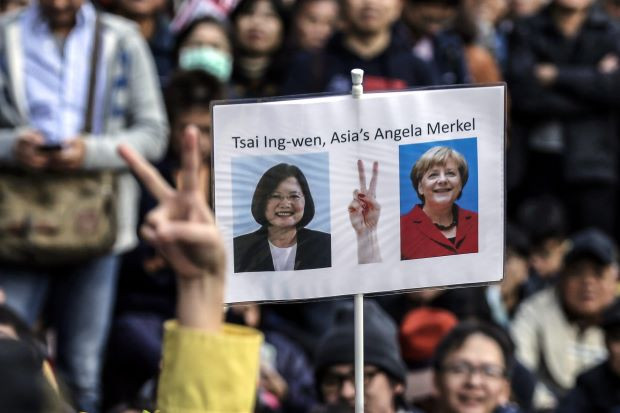 |
| DPP holds up a photo of Tsai Ing-wen and German Chancellor Angela Merkel in Taipei on January 15, with the caption: “Tsai Ing-wen - Angela Merkel of Asia.” Photo: EPA. |
She was nominated to hold many important positions in the Taiwanese government: Member of the negotiating delegation to join the World Trade Organization (WTO), advisor to the Security Council of the Taiwanese government, Chairman of the Mainland Affairs Council (the agency that manages issues in Taiwan-China relations).
In 2004, she joined the DPP and became its first female chairperson just four years later. In 2012, she ran for president of Taiwan but failed. However, it was a lesson that helped her clearly see her own strengths and weaknesses and the shortcomings of the DPP.
Ms. Tsai Ing-wen is considered the person who "resurrected" the DPP from the ruins after the party's not-so-small scandals during the period 2000 - 2008.
In my opinion, her character, ability and qualities also contributed a small part to the DPP's victory in the January 16 election.
PV:So what is the main reason that helped the Democratic Progressive Party win against the Kuomintang in the recent elections, Major General?
Major General Le Van Cuong:On this issue, international public opinion is currently divided into many different streams. I think there are two basic reasons.
First, in terms of economy, after 8 years of KMT rule, Taiwan has generally not had any impressive development in society. Especially since mid-2015, the economy of this territory has begun to enter recession.
Export orders - the mainstay of the economy - have fallen sharply over the past year. Most workers complain about low wages (only about 600 USD/month), not enough money to own an apartment or take care of children and elderly parents.
Also in the past 8 years, KMT has established close economic relations with China, signing 22 cooperation agreements. But surrounding this, even within Taiwanese society, there are many different opinions.
Most people believe that tightening economic relations with China only benefits a small group of large companies linked to the KMT government's interest group, while the majority of the population has not benefited at all. Therefore, it can be said that Taiwanese people, especially the young generation, are dissatisfied with the KMT's economic policies. They expect change when they vote for the DPP.
Second, politically, the KMT's apparent growing alignment with China has been unpopular with many Taiwanese, who fear that it will curtail basic civil rights.
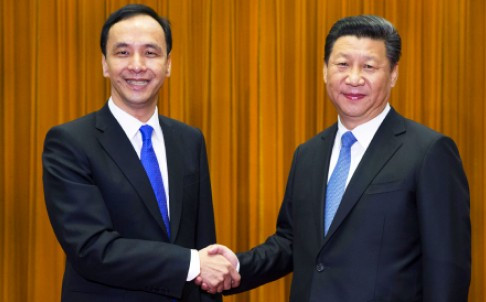 |
| KMT Chairman Zhu Lilun (left) during a meeting with Chinese President Xi Jinping in May 2015 in Beijing. Photo: THX. |
In addition, the 2014 “Occupy Central” movement showed that Hong Kong people were unhappy that their freedoms and democracy during the British colonial period were curtailed when the territory was returned to China. It was also a “warning bell” that awakened more than 23 million Taiwanese people to pay special attention to the issue of integration with China both economically and politically.
In addition to the two main reasons above that make Taiwanese voters lean more towards the DPP, the KMT's failure is also due to the fact that in the last two terms they did not set an example, the apparatus was corrupt, and interest groups were formed. The KMT's power apparatus with its signs of degeneration, degeneration, and distance from the interests of the people caused this party to bring about its own defeat in the January 16 election.
From China's perspective, they suspect that there was foreign interference in the election results. I think these issues need to be carefully studied.
Ultimately, the decisive factor still lies with the Taiwanese people. If the KMT government has the right domestic and foreign policies that are in line with the people's wishes and bring practical benefits to society, then no one can influence the election results.
PV:After January 16, public opinion has had many different judgments about the relationship between the two sides of the Taiwan Strait. What is your opinion on this issue, Major General?
Major General Le Van Cuong:The DPP victory is not good news for China. Although it has not said it, I think China wants the KMT to rule Taiwan, instead of the DPP, which has a tradition of independence.
Like it or not, Beijing has to accept reality. After the election results, China's Taiwan Affairs Office and the Taiwan Affairs Office affirmed that their major policy guidelines on Taiwan will not change after the election, continue to adhere to the 1992 consensus, and oppose activities promoting "Taiwan independence."
China's attitude is very clear, they affirm that no matter who wins the election in Taiwan, it will not change the perception that Taiwan is part of China.
As for public opinion, there are also many streams of opinion. The majority believe that Ms. Tsai Ing-wen will follow the path of “Taiwan independence”, causing relations with China to become tense. Some also believe that the DPP is no different from the KMT, continuing to tighten relations with China…
Here, I think that Taiwan has always been economically dependent on China. This is something the DPP cannot deny. The number one challenge facing Tsai Ing-wen is still the economy. If it cannot improve the living standards and social security of the people, the DPP will certainly be boycotted.
And so, the DPP cannot abandon or cut off relations with China, it can only maintain and adjust. Of course, Ms. Tsai Ing-wen has many other policies with the KMT, such as expanding relations with Japan, South Korea, the US, the EU, etc.
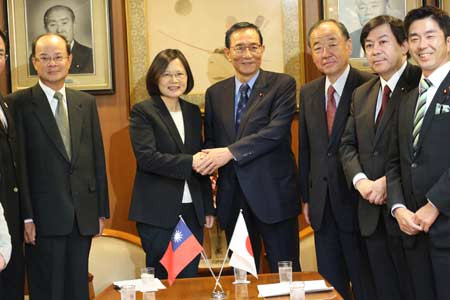 |
| Many people believe that Ms. Tsai Ing-wen will expand Taiwan's relations with other countries such as Japan, South Korea, the EU, the US, etc. Photo: CNA. |
Politically, she has also pondered the relationship with China since 1949. Smart and astute enough, she certainly understands that Taiwan cannot be declared independent. Of course, Tsai Ing-wen did not officially acknowledge the 1992 consensus, but she did not oppose it either, but remained silent.
I think leaving the issue open is the wisest choice for a female leader in the current context. Expanding relations with other partners while still maintaining relations with Beijing, the political-economic balance under Tsai Ing-wen will begin to balance more, bringing hope to revive the economy and maintain stable relations with China.
PV:Will the election in Taiwan have any impact on the situation in the East Sea, Major General?
Major General Le Van Cuong:In the short term, the 2016 Taiwan election will not have much impact on the situation in the South China Sea. But in the long term, the Taiwan Strait and the South China Sea issues are related.
In the West Pacific - East Asia, there are four hot spots: the nuclear issue of the Korean peninsula, the Diaoyu/Senkaku Islands dispute between China and Japan, the tense relationship between China and Taiwan, and China's dispute with ASEAN countries in the East Sea.
Behind these hotspots are the shadows of China and the United States, so the turmoil in Taiwan will certainly have an impact on other regions.
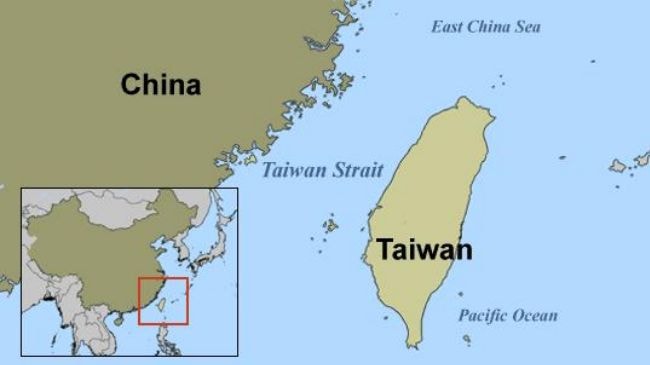 |
| Relations across the Taiwan Strait will have an impact on the West Pacific-East Asia hotspots. Photo: Internet. |
Therefore, we need to be careful in assessing the four hot spots above because they are interconnected. We cannot rule out the possibility that the US and China will cooperate and make concessions to each other in the medium term. In strategic research, we must put the East Sea issue in the broader context of the US-China relationship in resolving the four hot spots in the West Pacific - East Asia.
PV:Thank you, General!
Thu Giang
(Perform)
| RELATED NEWS |
|---|

